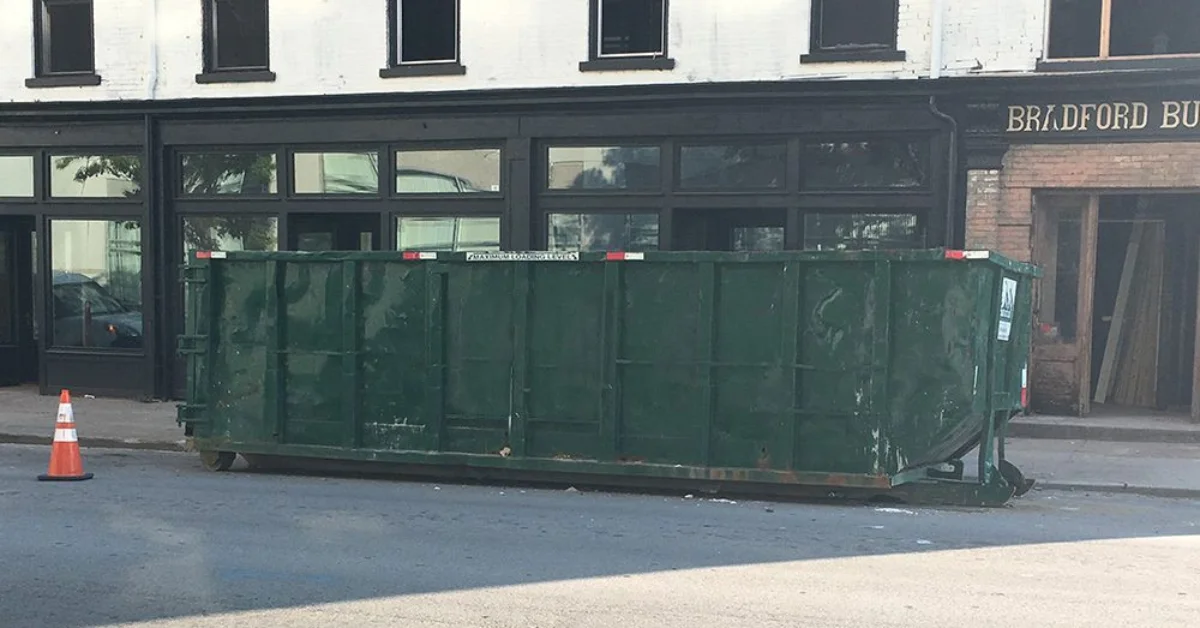Commercial Dumpster Rentals for Clean and Efficient Waste Management

Companies large and small—including eateries, shops, building sites, and offices—create lots of trash every single day. Proper disposal is essential not only for cleanliness but also for regulatory compliance, operational efficiency, and sustainability. That’s where commercial dumpster rentals come in.
Whether your company needs ongoing waste pickup or a temporary solution for a project or cleanup, commercial dumpster services provide the right tools for the job. This handbook will cover all the basics you need to understand, including different dumpster varieties and sizes plus rental advice and advantages.
Who Needs Commercial Dumpster Services?
Commercial dumpsters aren’t just for construction sites. Businesses across many industries rely on them for efficient waste handling. Common users include:
- Restaurants and bars: Generate consistent food and packaging waste that must be managed daily.
- Retail stores and shopping centers: Deal with boxes, product packaging, and inventory debris.
- Offices and corporate buildings: Produce paper, furniture, electronics, and general waste.
- Warehouses and manufacturing facilities: Handle large volumes of packaging, scrap, and materials.
- Construction and demolition companies: Need large roll-off dumpsters for debris and building materials.
Whether you require regular pickups or a one-time solution for a renovation or move, commercial dumpster rentals are customizable to fit your operational needs.
Types of Commercial Dumpsters
There are several types of dumpsters available for businesses, each suited to specific kinds of waste and frequency of use.
- Front-load dumpsters: The most common option for businesses with regular waste pickup. Available in 2 to 8 cubic yard sizes and serviced weekly or more often.
- Rear-load dumpsters: Similar in function but with a slanted back and hinged lid. These get emptied from the back and work well in cramped areas.
- Roll-off dumpsters: Ideal for temporary needs such as construction, remodeling, or cleanouts. These are available in larger sizes (10 to 40 yards) and are typically rented short-term.
Each type of dumpster serves different business demands—choosing the right one can improve efficiency and reduce costs.
Choosing the Right Dumpster Size
Picking the correct dumpster size relies on your business’s waste amount and the materials you’re throwing away. Common sizes include:
- 2-yard dumpster: Best for small offices or boutiques with minimal daily waste.
- 4-yard dumpster: Suitable for mid-sized businesses like restaurants or salons.
- 6-yard dumpster: Great for small apartment buildings or retail locations.
- 8-yard dumpster: Used by large offices, hotels, and institutions with high waste output.
- 10 to 40-yard roll-offs: Perfect for building projects, teardowns, and major cleaning jobs.
If you’re not sure what size is best, waste management companies can assess your needs and make a recommendation.
What Items Are Allowed in a Business Dumpster?
Commercial dumpsters can handle a wide variety of waste materials, but there are restrictions depending on the dumpster type and local regulations.
Commonly accepted items include:
- Office paper, packaging, and cardboard
- Food waste and containers (for restaurants)
- Wood, drywall, and non-hazardous debris (for construction)
- General trash and non-recyclable materials
Prohibited items often include:
- Hazardous waste, chemicals, or solvents
- Paint, oil, and batteries
- Large electronics and appliances
- Medical or biohazard waste
Be sure to check with your provider to understand what can and cannot be placed in your specific dumpster.
Benefits of Renting a Commercial Dumpster
Commercial dumpster rentals offer several key benefits for businesses, including:
- Convenience: On-site dumpsters allow for quick, centralized disposal of daily waste.
- Cost-efficiency: Flat-rate or volume-based pricing reduces long-term hauling costs.
- Cleanliness and safety: Keeps workspaces, loading docks, and job sites clean and compliant.
- Flexible scheduling: Most companies offer customizable pickup schedules and rental durations.
Also, lots of dumpster rental companies provide recycling options, helping your business become more eco-friendly.
How to Rent a Commercial Dumpster
Getting a dumpster rental is simple when you understand the steps involved. Here’s how to begin:
- Check your waste amount: Figure out how much trash and what kinds your business creates each day or week.
- Choose the right size and type: Match your needs to the appropriate dumpster type and capacity.
- Research nearby companies: Find businesses with positive feedback, clear pricing, and dependable service. For example, if you’re located in Colorado, look up Denver dumpster rental providers.
- Schedule delivery and pickup: Set a schedule that aligns with your operating hours and waste flow.
- Review contract terms: Understand fees, permitted materials, weight limits, and rental duration before signing.
Keeping Your Business Clean and Efficient
A reliable commercial dumpster rental service isn’t just about trash—it’s about keeping your business operations running smoothly and professionally. Whether you manage a fast-paced restaurant, a retail location, or a busy construction site, having the right waste solution in place helps you maintain compliance, cleanliness, and efficiency.
Choose a provider that offers flexible service, scalable options, and responsive support so your waste management process is one less thing to worry about.
